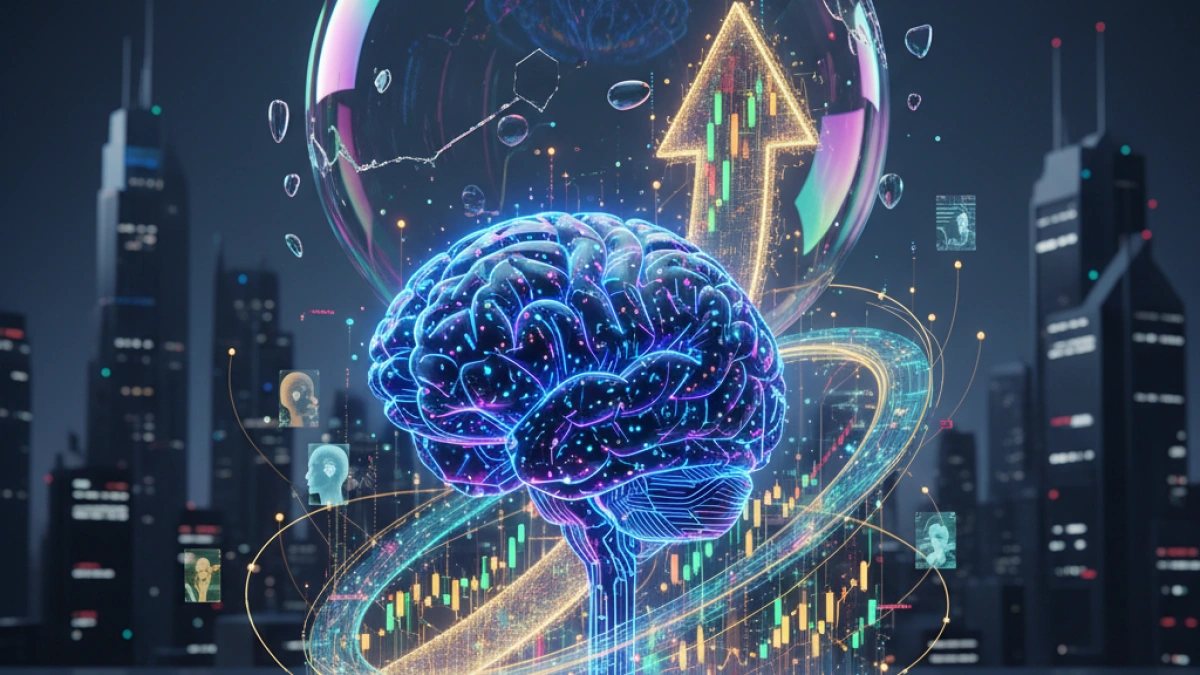Artificial Intelligence (AI) has established itself as one of today's most disruptive innovations, radically transforming both work and everyday life. However, the recent involvement of personalities like YouTuber and boxer Jake Paul in AI investments has raised questions about the sustainability of this boom. With his participation in the company Cognition, responsible for developing Devin (the first AI software engineer), concerns are emerging about whether a speculative bubble is forming.
The Investment that Raised Alarms
Jake Paul has been in the news after confirming his investment in Cognition, which has gained attention by raising $400 million and reaching a valuation of $10 billion. Through his usual enthusiasm, Paul claimed that Cognition's future "will unlock monumental human achievements" and become "one of the world’s leading labs in artificial intelligence and reasoning." These statements from a figure outside the tech realm have led many analysts to worry that the allure surrounding AI may be outpacing the reality of the sector.
The Unexpected Investor: A Repeating Pattern
The trend of inexperienced technical investors joining rising movements is a classic indicator of a bubble. This phenomenon is reminiscent of the cryptocurrency, blockchain, and NFT era, when various celebrities bet on technologies they didn't fully understand. A parallel can also be drawn with the dot-com bubble of the early 2000s. The growing popularity of AI, even in unusual products like socks, invites caution.
The problem does not lie in the technology lacking value, but in capital flowing towards companies that present valuations that may seem disproportionate. In the case of Devin, its $10 billion valuation is particularly surprising, given that it lacks its own AI model, and there are other companies offering similar AI products in the market.
Paul has a track record of varied investments, including OpenAI, but has also included more controversial projects, such as Clueli, an AI designed to provide real-time answers during interviews discreetly. This diversity in his investments suggests a strategy more reactive to trends than a deep analysis of the sectors in which he participates.
Not Everything Will Disappear, But Correction is Inevitable
It is crucial to understand that a bubble does not imply that all the technology in question is a fraud or will disappear. Artificial intelligence represents a true technological revolution that is here to stay. Established companies like OpenAI with its ChatGPT model and Anthropic with Claude are considered "too big to fail," with contributions of value that are indisputable.
However, as the bubble deflates, as often happens in cycles of technological innovation, only the strongest companies will remain. Many of the "satellite" companies that have benefited from the boom without presenting a truly innovative product may face serious difficulties. These companies are comparable to the "meme coins" in the crypto sector; they may have a moment of success, but their long-term viability is uncertain.
Final Reflections on Jake Paul's Involvement
The involvement of figures like Jake Paul in the AI landscape goes beyond being just an anecdotal moment. It represents a warning sign, indicating that the market may be in an overheated phase. While it is evident that AI will continue to shape the future, it is prudent to maintain a critical perspective, remembering that not every innovation that impresses with high valuations is synonymous with sustainable success.
Investment dynamics and the opinions of influential personalities can affect public perception, but it is essential for investors to analyze carefully before embarking on new trends. AI has unparalleled potential, but like any sector, excessive enthusiasm can lead to reckless financial decisions.
For more on this fascinating topic and related subjects, readers are invited to explore more content on the blog.





















